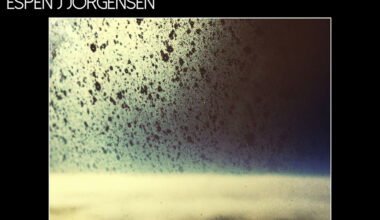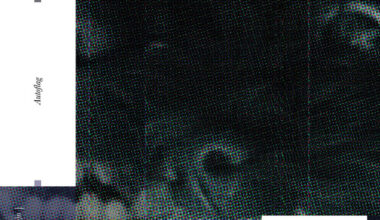When it comes to modular, what comes first, man or machine? Or is it somewhere inbetween?

What is it about modular? It has some strange power, that’s for sure. Whether it’s the simple act of building a modular set-up or whether it’s the peculiar effect a modular set-up has on its owner once built, sitting there, expensively blinking at you until you invest hours of you life in order to tease unpredictable sounds from it, modular exerts an almost psychological grip on many of its practitioners.
Salford’s John Howes is one of those for whom modular seems to require special working practice. He spent sleepless weekends recording much of this album, capturing the modular outputs straight to cassette, which is another indication of a peculiar workflow rooted somewhere between nostalgia for superannuated technology and a mild modernist obsessive compulsive disorder.
Apparently, the whole album was recorded without any overdubs or editing, and that’s surprising given the evident organisation of the sound. It sits in similar territory to the woozy organic work of Luke Abbot, another modular operator. The delays on the delicate opening of ‘Concagnis’ recalls some of Kraftwerk’s early processing of tones, when Ralf would find a pretty organ phrase and have it tumble over and over itself, creating pleasant moods from piles of musical jumble. You can hear the influence of other German innovators, especially on the more mechanical ‘Zeroset’, which recalls some of the machine pulse aesthetic of the album of the same name by Moebius, Plank and Neumeier, with its mathematical reference, but Howes’ output remains pleasingly softer edged and calm.
So is “modular” becoming a music genre in itself? And if it is, how do we feel about it? Are Lloyd Cole’s recent excursions into modular really so different from what we have here? Electronic music has a long and rich history of the sound of the machines themselves having a significant impact on the music made with them, and it’s long been the stick used by synth-hating rock types to beat it with. Of course, the same argument can be levelled at a lot of music made with more traditional instrumentation, that it sounds repetitive and derivative.
This is an album that certainly sits within a wider phenomenon of artists moving away from the convenience and ease of digital music production and seeking an interaction with electronic music that requires more effort, and includes serendipity and mistakes as part of the composition process, as encouraged by the overlord of this music, Sir Brian of Eno. And the evidence is, based on the personality of this release and others like it, that it’s the individual’s interaction with the machines that counts, not the machine itself.





